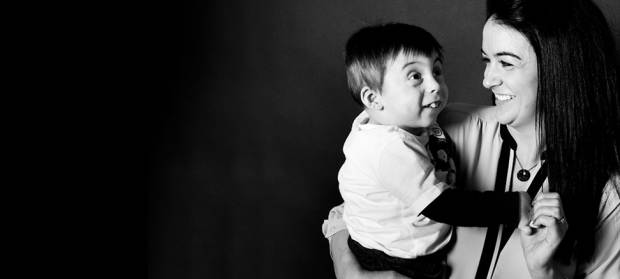Early years is the period of time between a child’s birth and their 5th birthday.
It is a very important time in the life of a child with a
learning disability
 A learning disability is to do with the way someone's brain works. It makes it harder for someone to learn, understand or do things.
, both in terms of their development and also bonding with their family.
A learning disability is to do with the way someone's brain works. It makes it harder for someone to learn, understand or do things.
, both in terms of their development and also bonding with their family.
It is also a time when families get to know their child and identify the support they need to help their child achieve their potential.
What did we ask for?
- There should be a wide range of local advice, information and practical support for families at the point of diagnosis, or when it is clear a child has a learning disability.
- Families must get the right support and intervention at the right time to ensure their child is able to develop to their full potential.
Key statistics
- There are 200 children born each week who will have a learning disability and an estimated 54,000 children with a learning disability in England who are 5 or under.
- Three quarters of local councils do not have enough childcare for disabled children (Family and Childcare Trust, 2014).
- 92% of mothers of disabled children say finding childcare for their child is more difficult compared to non-disabled children.
- 33% don’t use childcare because staff don’t have the right experience (Contact a family, 2014).
Oisin's story
Hear from Natalie and John about their son, Oisin.
Natalie's story
The diagnosis hit us hard. The huge challenges that lay ahead for Oisin, and our family, were terrifying.
When we planned to have a baby, we expected a crawling, walking, talking child like everyone else.
Then we were told that’s not going to happen, your baby isn’t normal. I’ll be honest - it was devastating. Some people say it’s like grieving.
My pregnancy was brilliant. My scans and screens were all normal. Then the day Oisin was born they noticed he had some different features. His jaw was very far back, he had clenched hands and one of his feet was bent right back.
The initial diagnosis was terrifying for us. They told us it was Edward’s syndrome and that we should say goodbye to our son and call the priest.
After hearing that, we didn’t care what the final diagnosis was, as long as we got to keep our baby, as long as it wasn’t fatal.
Our son Oisin is five now. He has a learning disability and a syndrome so rare that it has no name. I had to let go of my plans for my son, we had to make new plans.
Oisin is a very special boy with special needs and we want him to have the same opportunities as every other child.
We found out quickly that there is no childcare for children like Oisin in Belfast. Crèches and child minders are reluctant to look after him. There is also a lack of staff, facilities and knowledge.
People were quick to offer us grants but it wasn’t money we needed.
For us, Mencap’s Segal House Nursery has been a godsend. I really don’t know how we would have managed without it. The type of childcare Oisin gets there just isn’t available for children like him elsewhere.
He has physio, speech and language workers and the play environment is so wonderful. He can play like all the other children now. Without this support I wouldn’t be able to work and we wouldn’t be able to cope with the stigma we unfortunately face as a family.
It was so difficult at the beginning but we are such a happy family now. We go on family trips, we do everything any other family might do and I don’t feel sorry for us at all. We are lucky and Oisin is just happy as Larry, so we are too.
I’ll always remember my mum saying to me:
“You know, it’s hard today but tomorrow you’re going to get on with this and this kid will give you more than you could ever imagine.”
She was right.
